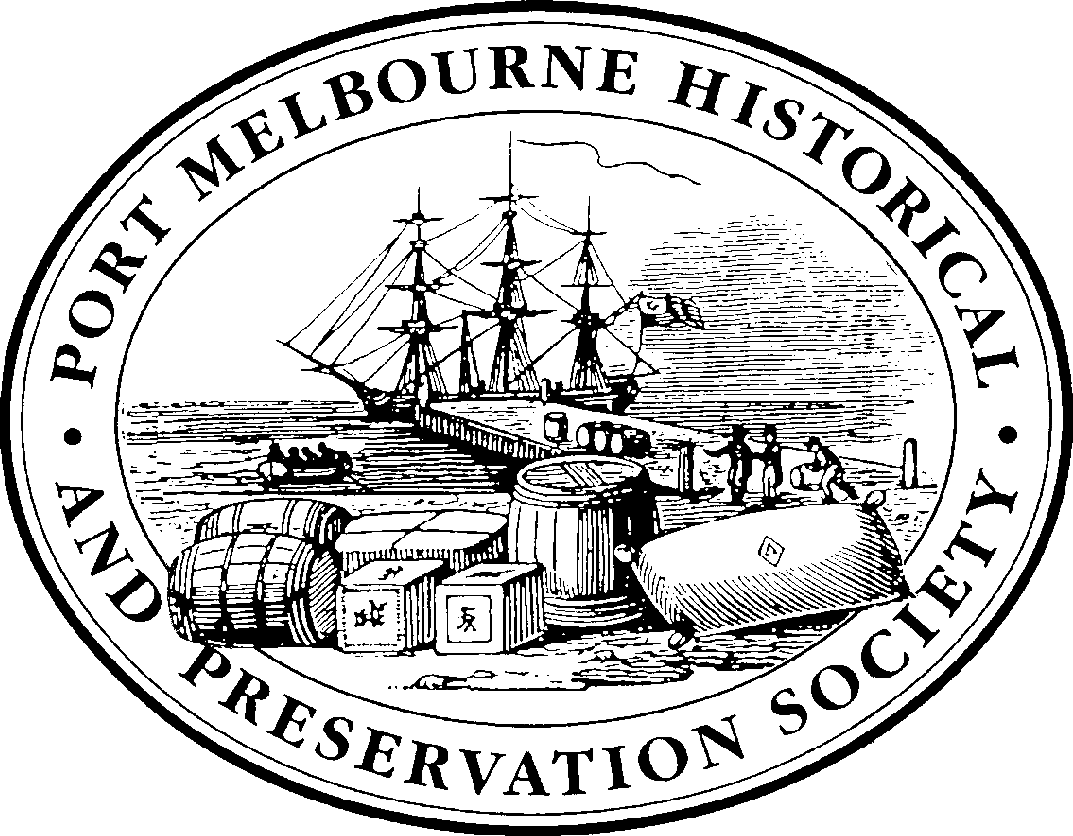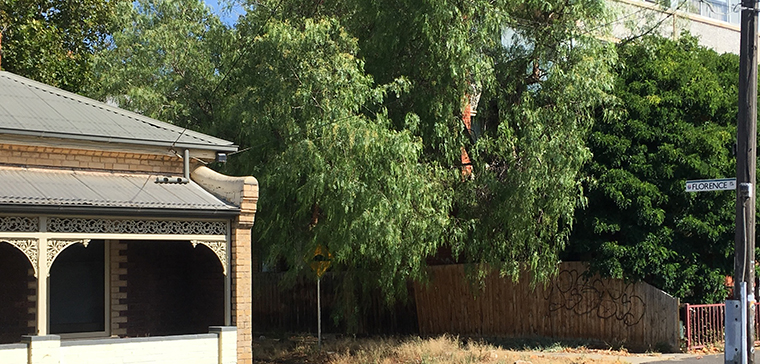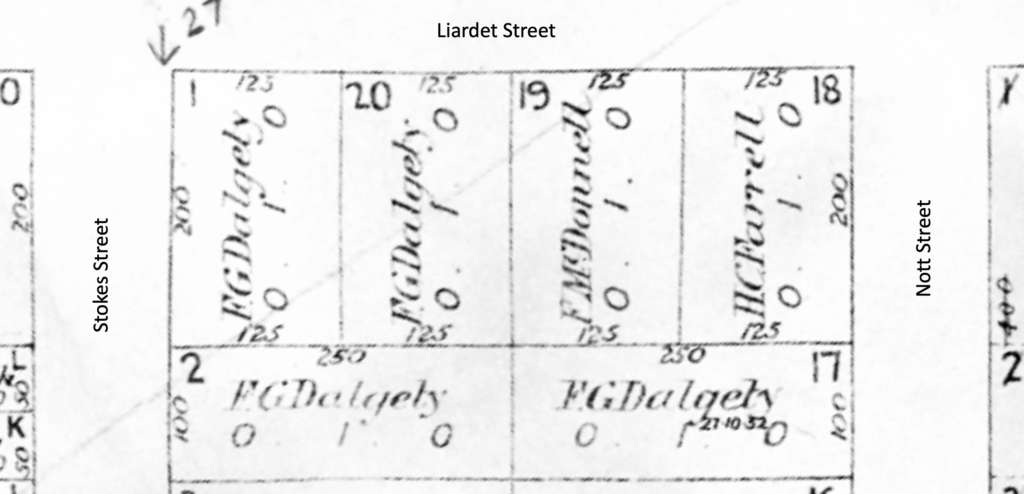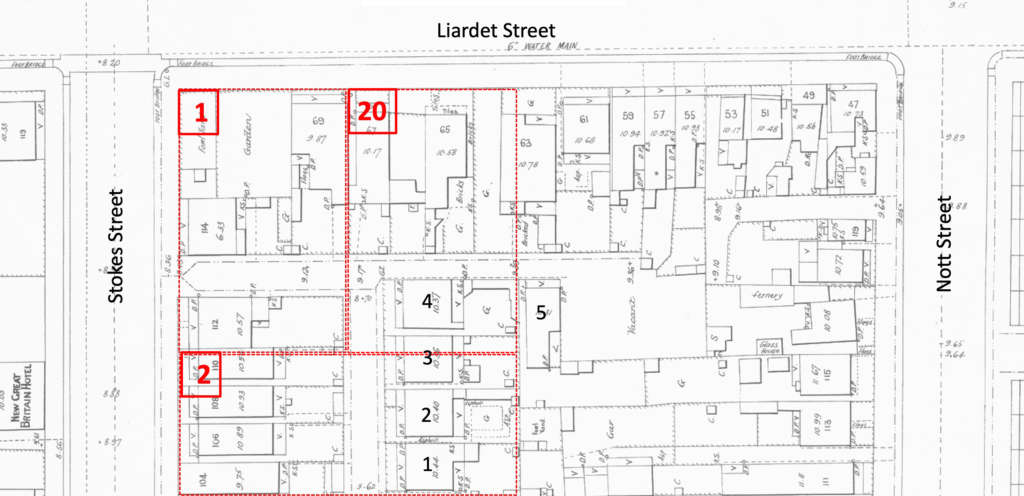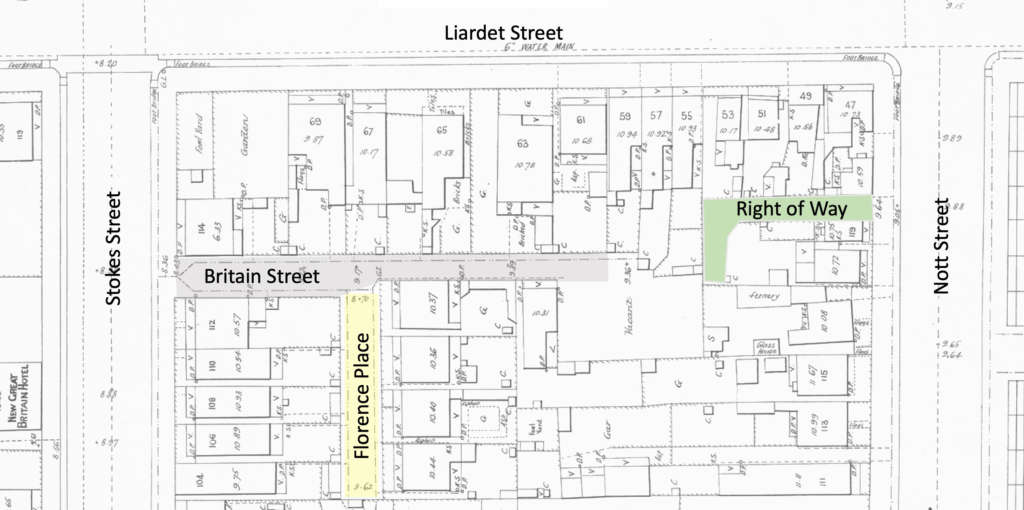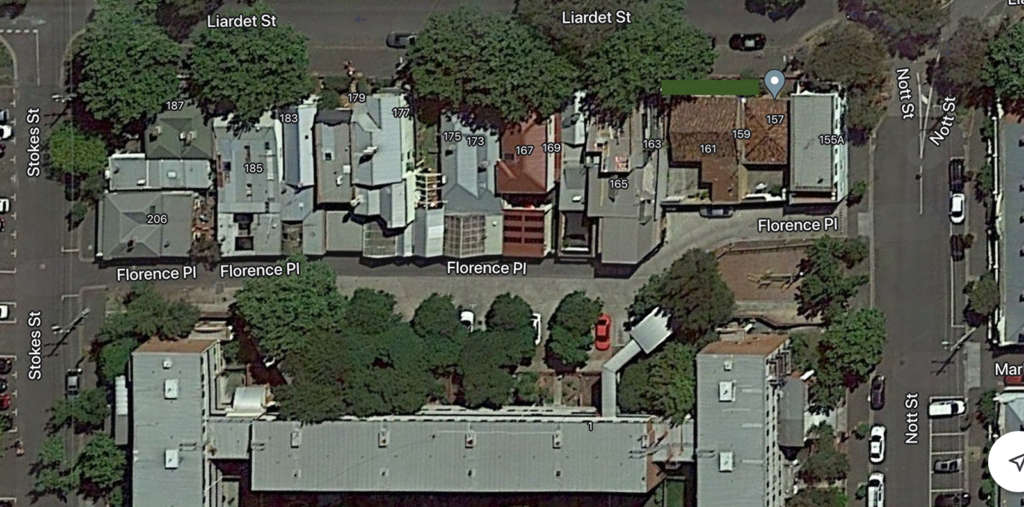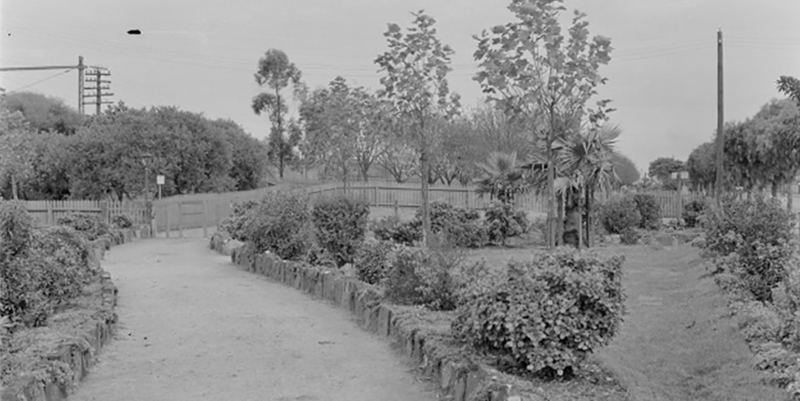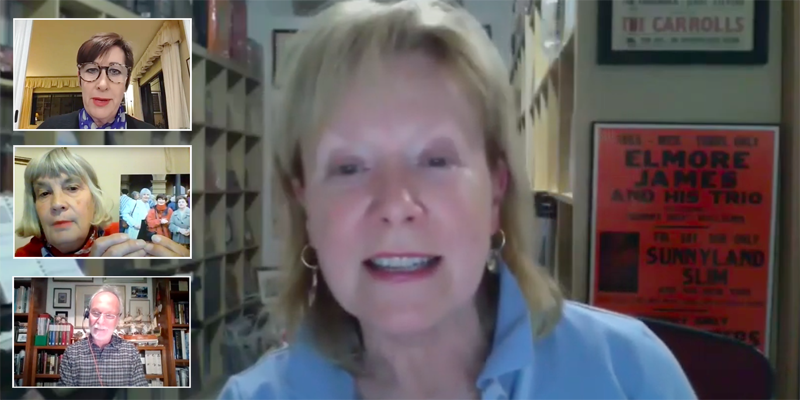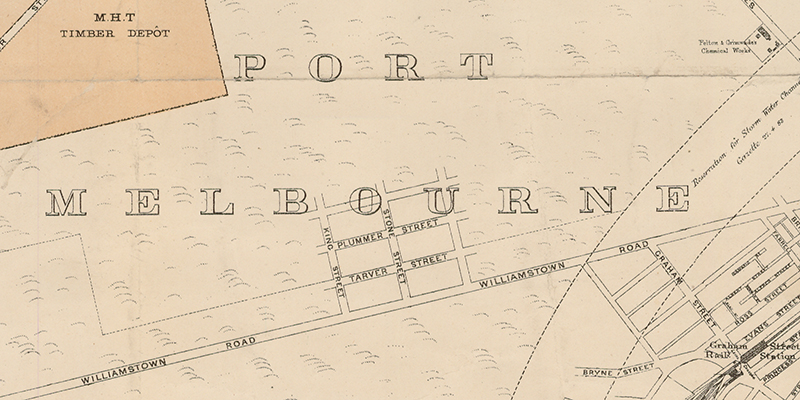Florence Place (& Britain Street)
by David F Radcliffe
When I first came across Florence Place it grabbed my attention as my mother’s name was Florence. Running between Stokes Street and Nott Street just south of Liardet Street, it affords access to the northern side of the large apartment complex that occupies most of this block. Strolling down it, I wondered why it was straight for most of its length but then made a large “dog-leg” as it approached Nott Street.
The block of land bounded by Stokes, Graham, Nott and Liardet (Crown Land Block 9) was divided neatly into 20 large allotments each of one rood (40 perches) and sold at auctions in October 1852 and January 1853. This was during the peak influx of people to the gold fields. One of those who benefitted handsomely selling provisions to the diggers, Canadian-British merchant Frederick Gonnerman Dalgety, purchased five of these allotments in Block 9.[1] As demand for housing and business premises grew in Sandridge, all these 40 perch allotments were sold on and subdivided usually for a decent profit.
The map below shows the houses that had been built in the upper portion of Block 9 by 1894. The outline of the three allotments purchased by F G Dalgety, numbers 1, 2 and 20, are shown to indicate the extent of the subdivision that had occurred. The five houses located behind those fronting onto Stokes and Liardet Streets were built around 1874.[2] From 1886, they were recorded as “Florence Cottages” in the Sands & McDougall Street Directory. The right of way off Stokes that gave access to the cottages was known as “Browns Place”, presumably after Thomas Brown who owned one of the properties.
In March 1896, the residents of the five cottages requested that Port Melbourne Council rename Browns Place. The part that ran perpendicular to Stokes Street was to be called Britain Street and the part that went in front of the first four cottages was to be Florence Place.[3] The Council obliged. Two years later, the Melbourne and Metropolitan Water Board connected the cottages to the water supply. There was also a right of way off Nott Street. However, this terminated at a fence, so the two sets of internal access ways did not join up. By 1910, Sands & McDougall no longer included Britain Street. All the houses were listed under Florence Place.
During the 1950s, the number of houses listed in Florence Place dwindled to just one. The whole area was redeveloped, and the apartment block built in 1960. What was once Britain Street was joined to the right of way off Nott Street to become the Florence Place that is there today.
Where the name Florence came from remains a mystery. So far no one named Florence with links to those who owned the parcel of land, or the cottages has emerged from the historical records. Perhaps the name honours Florence Nightingale; perhaps we will never know who Florence was.
[1] R. M. Hartwell, ‘Dalgety, Frederick Gonnerman (1817–1894)’, Australian Dictionary of Biography, National Centre of Biography, Australian National University, https://adb.anu.edu.au/biography/dalgety-frederick-gonnerman-283/text5051 , published first in hardcopy 1972, accessed online 19 January 2023.
[2] Borough of Sandridge Valuation Books 1872/3 and 1873/4.
[3] ‘Town Council’, Standard (Port Melbourne), 28 March 1896, p. 3. http://nla.gov.au/nla.news-article165314641
